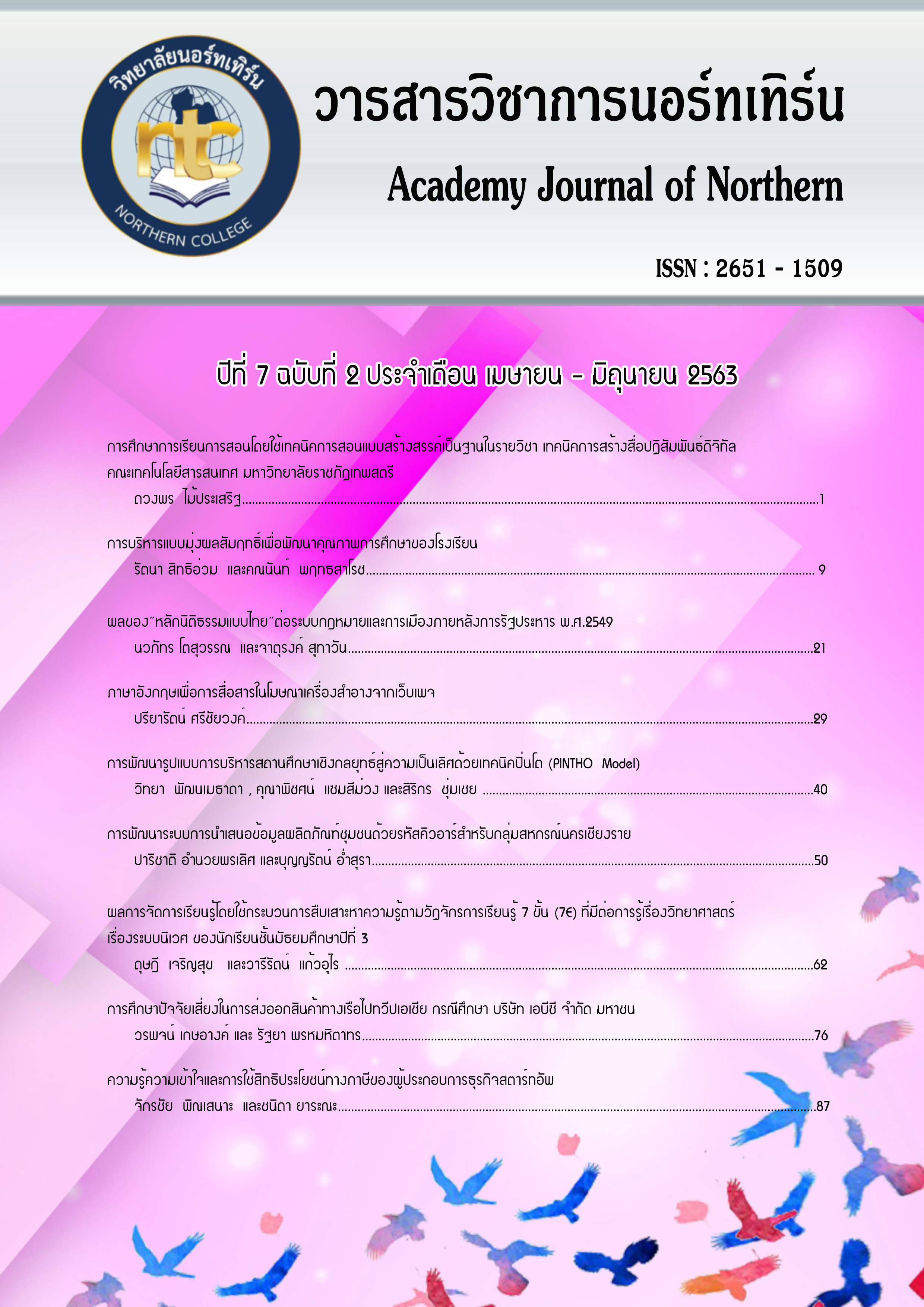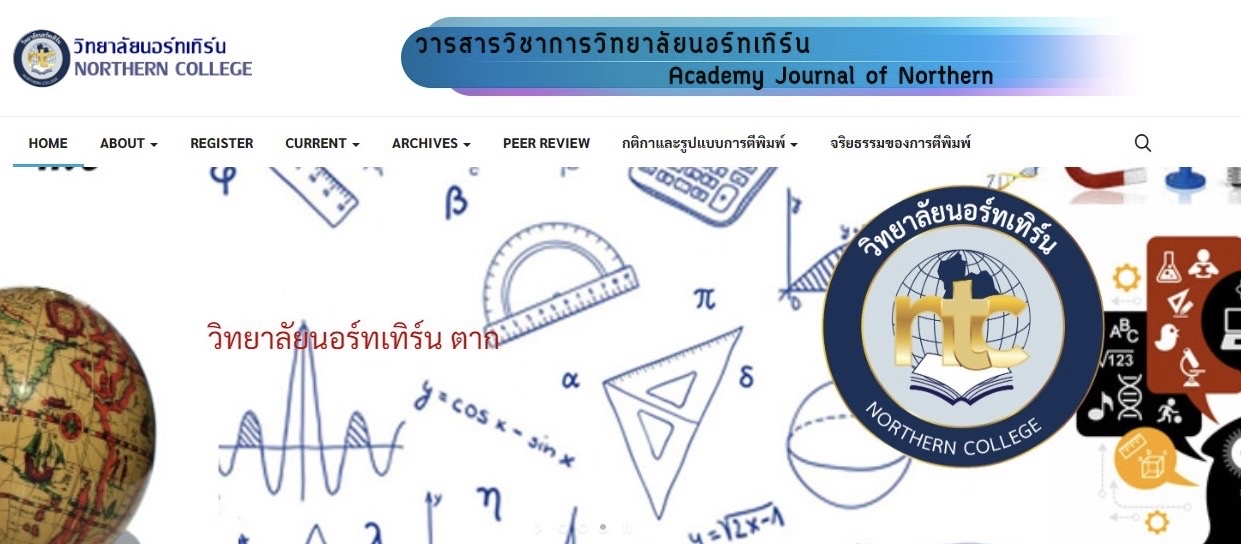The effect of "Thai Rule of Law" on the legal and political systems after the 2006 coup
Keywords:
Rule of Law, Law, Coup d'etatAbstract
The purpose of this research To study the subject The effect of the "Thai Rule of Law" on the legal and political systems after the 2006 coup. This research is a qualitative research. Is a descriptive research which studies from books, documents, articles,journals, including news analysis from newspapers There will also be close interviews with those involved in the event. And those with expertise in relevant issues as well After that, the information is analyzed for various related issues. The research tool is to define the questions that are linked to the objectives. In order to make the question clear and in the framework of the research process And analyze descriptive data.The result of the research shows that.
(1) The constitution that is a law that is inconsistent with the Thai traditional law can therefore be easily destroyed despite being the supreme law. (2) The push for elite institutions to be one of the powers in the Thai political system Which is above all other political institutions These powers have increased even more. At present, the word "above politics" according to Thai law. Is no longer out of stock or no longer involved in politics It refers to the power of the elite to intervene in politics. (3) The Rule of Law in Thai law The Sovereign status is above the constitution and above all political systems. Will be considered under the law or above the law If according to the principles of the Legal State and The Rule of Law, the law must be the largest Who or what mechanism inspects the power of the elite under Thai law. May be accused of being malicious to the state.
References
ธงชัย วินิจจะกุล. (2561). เมื่อสยามพลิกฝัน: ฟ้าเดียวกัน. กรุงเทพฯ.
ธงชัย วินิจจะกุล. (2563). ปาฐกถาพิเศษ ป๋วย อึ้งภากรณ์ ครั้งที่17 เรื่องนิติรัฐอภิสิทธิ์ ราชนิติธรรม ประวัติศาสตร์ภูมิปัญญา rule by law 9 มีนาคม 2563 ณ หอประชุมมหาวิทยาลัยธรรมศาสตร์ รังสิต.
ประมุข บัณฑุกุล และศิวัช ศรีโภคางกุล. (2560). บทบาทของศาลรัฐธรรมนูญท่ามกลางความขัดแย้งทางการเมือง. วิทยานิพนธ์มหาบัณฑิต. มหาวิทยาลัยขอนแก่น.
ปิยบุตร แสงกนกกุล. (2562). ศาลรัฐประหาร : ตุลาการ ระบอบเผด็จการ และนิติรัฐประหาร. ฟ้าเดียวกัน. กรุงเทพฯ.
วรเจตน์ ภาคีรัตน์. (2558). ด้วยกฎหมายและอุดมการณ์.กรุงเทพฯ.shine publishing.
อนุสรณ์ ธรรมใจ. (2563). ความเห็นต่อกรณียุบพรรคอนาคตใหม่และการรณรงค์แก้ไขรัฐธรรมนูญ.กรุงเทพ : มติชน.
Ran Hirschl, "The New Constitution and the Judicialization of Pure Politics Worldwide,"Fordham Law Review 75, 2 (2006) : 721-53; Ran Hirschl, The Judicialization of Mega-Politics and the Rise of Political Courts," Annual Review of Political science 11 (2008) :93-118.
Downloads
Published
How to Cite
Issue
Section
License
Copyright (c) 2023 Academy Journal of Northern

This work is licensed under a Creative Commons Attribution-NonCommercial-NoDerivatives 4.0 International License.







